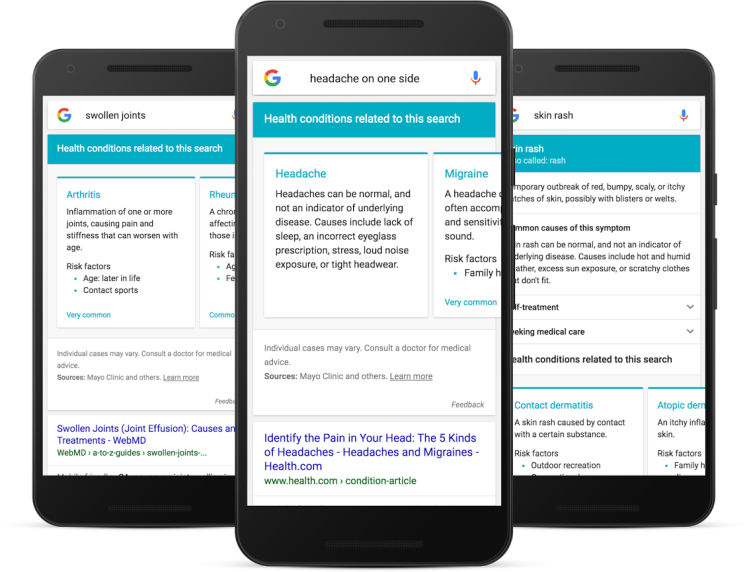Looking for accurate health information on the web is still kind of like peering into a black hole — take a wrong turn while investigating something harmless like “fever” and your search for a diagnosis could spiral out of control.
Google is aware of this phenomenon and claims that about one percent of all searches on the service (that’s a large number) are “symptom-related.” And so Google, after consulting its lawyers, teamed up with doctors to develop a list of symptoms, and then consulted Harvard Medical School and Mayo Clinic “experts” to evaluate the results.
So next time you search for “headache on one side,” Google says, the search engine will show you related conditions and info on whether you need to go to a doctor or if you can treat your symptoms yourself. Handy.
For now, Google is rolling the feature out slowly and only to a limited number of users — “over the next few days” in just English to U.S. mobile users. However, the company says it may eventually expand its list of symptoms and release the feature in other countries and languages.
VentureBeat's mission is to be a digital town square for technical decision-makers to gain knowledge about transformative enterprise technology and transact. Learn More

